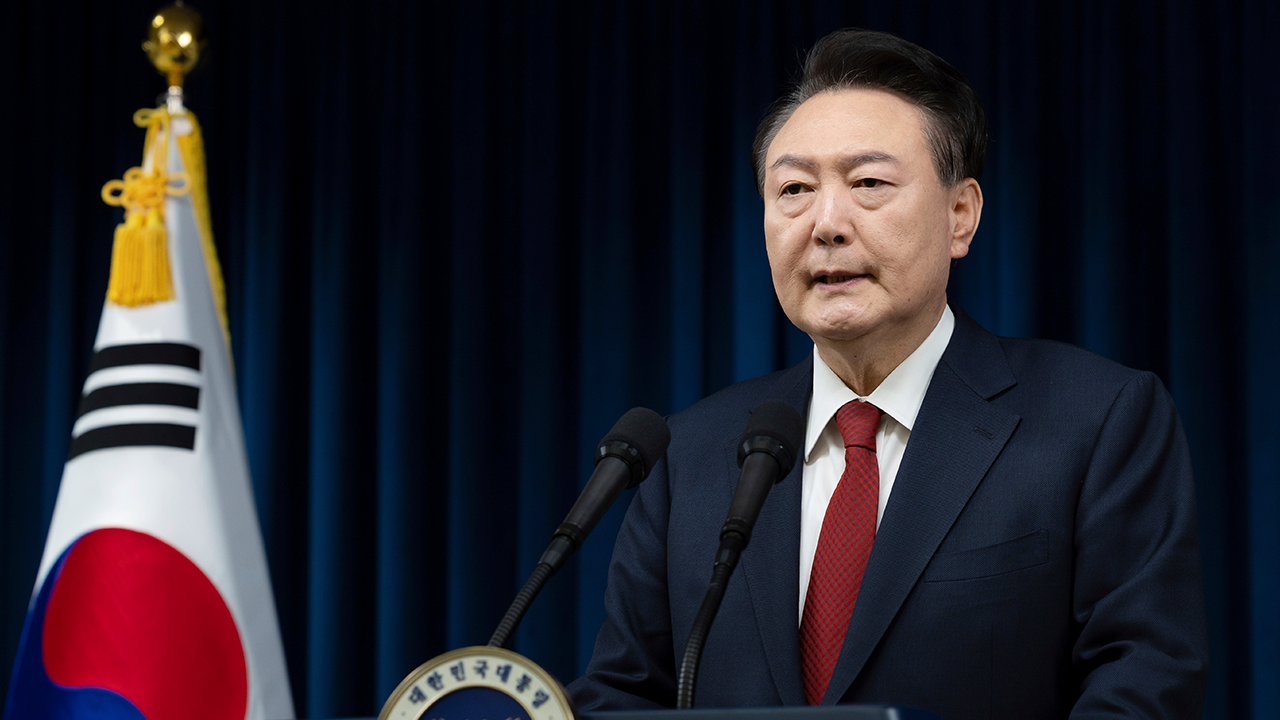President Yoon faces travel restrictions due to South Korea's martial law declaration.
President Yoon Suk Yeol managed to evade an impeachment attempt led by the opposition.

On Monday, the South Korean Justice Ministry imposed a travel ban on President Yoon Suk Yeol, preventing him from leaving the country while an investigation into charges of rebellion and other offenses continues.
Last Tuesday, martial law was declared by Yoon, resulting in the deployment of special forces troops in Seoul and sparking political protests.
Despite an unsuccessful attempt to impeach him on Saturday, opposition parties vowed to submit a new impeachment motion against Yoon this week.
Yoon was barred from leaving the country by the Justice Ministry, following requests from police, prosecutors, and an anti-corruption agency to expand their investigations into the circumstances surrounding Yoon's declaration.

On Monday, a senior National Police Agency officer informed local reporters that Yoon could be detained by police under certain circumstances.
While a South Korean president is in office, they have immunity from prosecution, but this does not shield them from accusations of rebellion or treason.
In 2017, former President Park Geun-hye was impeached by parliament and removed from office due to a corruption scandal. Despite prosecutors' attempts to search her office, they were unable to do so because presidential officials refused them entry, resulting in the receipt of documents outside the compound.
In March 2017, Park was questioned and arrested after being impeached and dismissed as president, despite initially refusing to meet with prosecutors during her time in office.

The Democratic Party has accused Yoon's martial law declaration of being "unconstitutional, illegal, and a coup." The party has filed police complaints against at least nine individuals, including Yoon and his former defense minister, regarding the allegations of rebellion.
On Sunday, former Defense Minister Kim Yong Hyun was held by South Korean prosecutors for allegedly suggesting that Yoon declare martial law, marking the first individual implicated in the martial law investigation.
Three military commanders were suspended by the Defense Ministry last week due to allegations of imposing martial law.
On Saturday, Yoon, a conservative, apologized for the martial law declaration and stated that he will not evade legal or political responsibility for the motion. He added that he will allow his party to guide the country through its political turmoil, including issues related to his term in office.

In his martial law address on Tuesday evening, Yoon labeled parliament as a "criminal den" hindering state affairs and pledged to eradicate "shameless North Korea supporters and anti-state elements."
Yoon's martial law decree was lifted after six hours due to a vote by the National Assembly, which included members of his governing party.
On Sunday, Han Dong-hun, the leader of the governing party, announced that his party will work towards an early and organized departure of President Yoon from office, in a manner that minimizes social disruption, and Yoon will not participate in any state affairs, including foreign policy.
The Defense Ministry stated during a Monday briefing that the president, Yoon, retains control of the military, as per the constitution's explicit reservation of this power for the president.
The Associated Press contributed to this report.
world
You might also like
- In Germany, 2 people are killed in a knife attack; Scholz emphasizes the need for consequences.
- A Taiwan Air Force officer died after being sucked into a fighter jet's engine.
- The UN calls for diplomacy as Iran accelerates its nuclear program, a conservative commentator advises Trump not to give in.
- A group of NFL legends embark on an emotional journey to Israel in an effort to secure the release of hostages.
- Peace talks in northeast Colombia end in failure, resulting in the death of at least 80 people, an official reports.



















